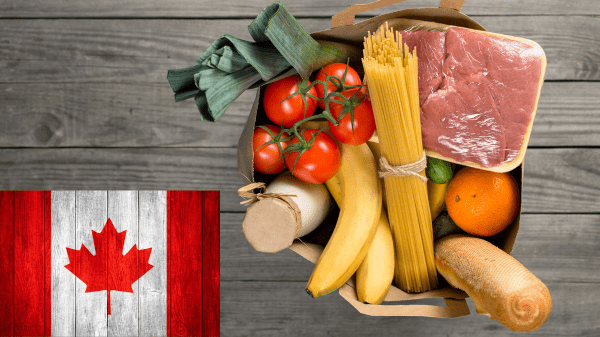The proposed Canadian national budget for 2023 includes a one-time “grocery rebate” for low-income households.


The government of Canada’s website explains: “For 11 million low- and modest-income Canadians and families, the Grocery Rebate will provide eligible couples with two children with up to an extra $467; single Canadians without children with up to an extra $234; and seniors with an extra $225 on average.” Chapter 1: Making Life More Affordable and Supporting the Middle Class | Budget 2023 (canada.ca)
“This will be delivered through the Goods and Services Tax Credit (GST Credit) mechanism,” the site explains. “By targeting the Grocery Rebate to the Canadians who need it most, the government will be able to provide important relief without making inflation worse.”
The proposal has attracted critics, partly on account of its one-time status. “The so-called ‘grocery rebate,’ a one-time payment that will help some, but only for a very short period,” comments Sylvain Charlebois of Dalhousie University. “Food inflation will remain a challenge for all Canadians for quite some time.”
Charlebois believes that the payments will heighten food inflation in Canada, which was 8.9 percent in 2022. https://www150.statcan.gc.ca/n1/daily-quotidien/230117/dq230117b-eng.htm
Charlebois also pointed out that the proposal did not target “any relief that was solely dedicated to healthy food purchases inspired by Canada’s Food Guide.”
Other commentators view the step more favorably.
“This policy takes the right kind of approach to supporting food-insecure Canadians, but it doesn’t go far enough to address the large and longstanding problem of household food insecurity in this country,” write Valerie Talasuk and Tim Li, both professors at the University of Toronto. Federal budget 2023: Grocery rebate is the right direction on food insecurity, but there’s a long road ahead (theconversation.com)
They point out that one out of six Canadian households was food-insecure in 2021, Household Food Insecurity in Canada, 2021 – PROOF (utoronto.ca) adding, “With the recent unprecedented inflation, these statistics can only have worsened.”
Although Canada is widely believed to have a larger social safety net than the U.S., there is one notable difference: it doesn’t have an equivalent to the food stamp program, as Charlebois indicates: “Americans have a massive SNAP Food Benefit program which supports families in need. Commonly known as the Food Stamp program, it is funding that is given to families to lessen the burden of inflation at the grocery store, no matter what might be happening with food prices. It may be time for Canada to give Agriculture and Agri-Food Canada the task of developing such a program for Canada. This would be a massive undertaking, but we need to start somewhere.”



